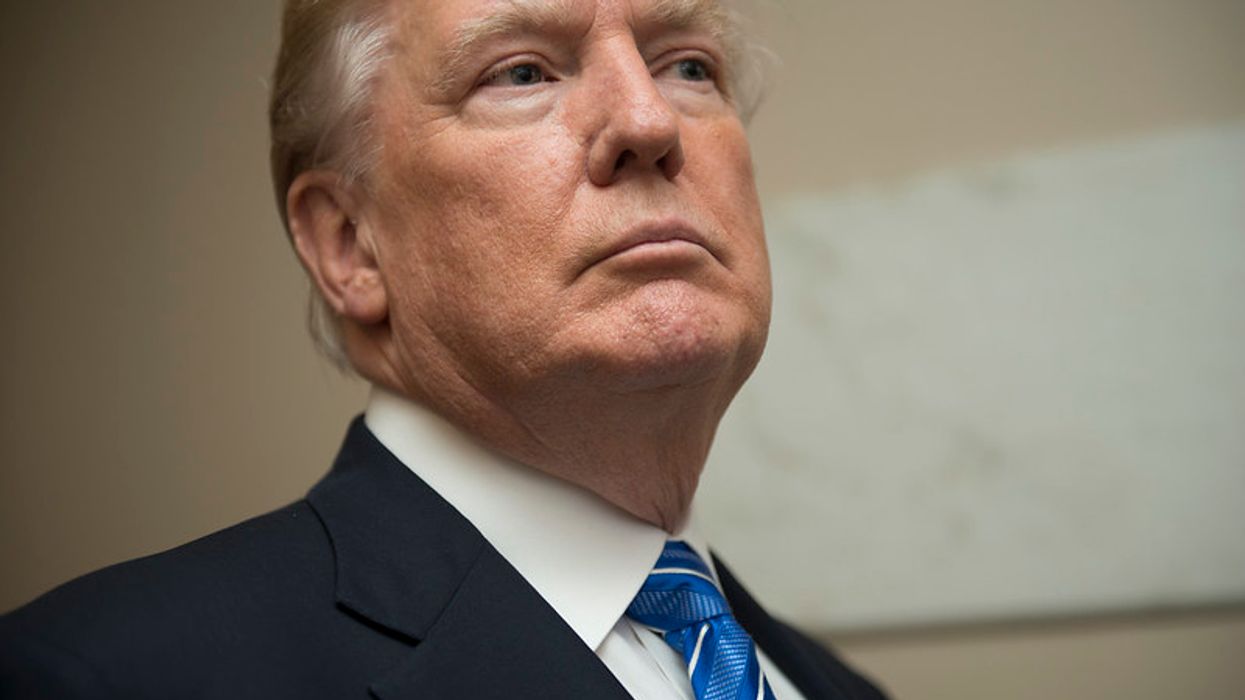While it has been a treat to see the value of shares in Trump Media drop off a cliff, what is much less fun is thinking about how much the whole enterprise distorts democracy.
Before Trump, it would have been impossible to imagine a former president helming a publicly traded company while running for office again. However, the Trump presidency shattered every norm as Trump used his office to line his pockets.
A second Trump presidency will be worse, without a doubt, particularly because the federal courts, now stuffed with Trump appointees, are happily weakening the meager guardrails that remain.
While the name “Trump Media” connotes some sort of multi-faceted media empire, it’s really just Truth Social, Trump’s hard-right social media network. Truth Social is, to put it bluntly, not terribly popular. Its audience keeps plummeting, and even Trump has returned to posting on X, a rival platform with an audience nearly 100 times that of Truth Social. The stock was comically overvalued, pegged at $7 billion despite Truth Social posting millions of dollars of losses and having nearly no revenue.
None of that seems to matter to die-hard Trump fans, who poured money into the stock with what one stock analyst called a “quasi-religious fervor.” They’re happy to excuse the losses, making statements like “I did it more as a statement to President Trump and to show support at the time,” said Teri Lynn Roberson to ABC News. “I wasn't really looking to make a lot of money,” said Roberson, who bought five shares of the company after it went public in March.
That’s probably the best attitude, given that top executives at Trump Media started selling off their shares as soon as possible, eating huge losses in their quest to get out from under the failing stock. Trump still owns his shares, representing roughly 57% of the company. Until Sept. 19, Trump could not sell shares, as he and other company insiders were in a six-month lock-up period. Toward the end of the lock-up period, Trump said he wouldn’t be selling his shares, a statement that goosed the stock price a bit at the time.
In a typical company, this might be seen as a vote of confidence from the founder, a willingness to risk their own fortunes. But Trump has far darker reasons to hold on to his stock. If Trump wins the election, the chances that investors will pony up and buy Trump Media stock increases. People could buy access to the president by throwing money at his company, which he would be running from the White House.
As Abdallah Fayyad explained at Vox, it is easy to imagine someone who has maxed out their campaign contributions deciding to show support for Trump by investing in Trump Media instead. This is, of course, not speculation.
During Trump’s first term, millions of dollars poured into his hotel in Washington, D.C., with Republicans pretending that they were just staying there because it was the most convenient location. However, they’ve barely stayed in that hotel since it changed hands and became a Waldorf Astoria in 2022.
And why would they? It’s no longer a way to show Trump their support by helping him profit financially. Trump has shifted his focus as well, instead selling access to Mar-a-Lago to the tune of $1 million per membership.
Trump Media is an ethical nightmare, but at least it’s a publicly traded company, which comes with transparency and oversight. Trump’s push into the crypto market, on the other hand, is opaque and unregulated—the perfect vehicle for a corrupt former president to get spectacularly more corrupt if he’s elected again.
The crypto project, with the uninspired name of World Liberty Financial, serves as a way for Trump to give all his failsons—now including Barron, who is the “visionary” behind the project—a fake job that still comes with real money. The fact that all of Trump’s adult sons—none of whom have worked in the financial sector—are heading the project is one way to tell that this crypto effort will just be another unserious grift.
Additionally, no one seems to actually know what this crypto company will do, even after a two-hour livestream launching the effort. Even Trump doesn’t seem quite sure. When trying to explain it, here’s what he came up with: “Crypto is one of those things we have to do… Whether we like it or not, I have to do it… It's crypto, it's AI, it's some of the other things,” he said in an interview on X. Got it.
Where some of Trump’s other ventures, like Trump steaks, Trump bottled water, and Trump vodka, might have appealed to the masses if they were any good, Trump’s relatively newfound affinity for crypto is wholly tied to that financial sector’s affinity for right-wing politics. It’s also a way for him to court the crypto vote and contrast himself with the Biden-Harris administration, which has cracked down on crypto scams and prosecuted people like Sam Bankman-Fried for defrauding investors out of billions of dollars.
The crypto sector has spent over $100 million during the 2024 election cycle thus far, hoping to usher in an era of less oversight and fewer consumer protections. Trump is the superior political choice if you want less regulation of the financial markets.
The conservatives on the Supreme Court have already seriously dented the Securities and Exchange Commission's ability to address violations by ruling that they must conduct full-fledged jury trials rather than use an in-house administrative process. Those same conservatives also just struck down the Chevron doctrine, which required courts to defer to agency interpretations of statutes.
Under Biden, the current head of the SEC, Gary Gensler, has called the crypto sector “rife with fraud and hucksters and grifters.” If Trump wins in 2024, he could weaken the SEC without legislation or court action simply by installing people who won’t impose fines or pursue scammy crypto companies. That’s not just a giveaway to the crypto bros Trump is courting, though. It would also be a move that lines Trump’s pockets with unregulated crypto cash while in the White House.
Ordinary people can see the obvious problems here. Trump shouldn’t have private business interests while in the White House, period, but all of that went out the window in his first administration. Trump certainly shouldn’t have a private business in a regulated industry like securities when he would have the power to weaken regulations over his own business.
But Trump fans love giving Trump’s businesses money and increasing his personal bottom line. They understand very well that Trump looks favorably at their efforts to funnel him cash. If he wins in November and his nonsense crypto project stays afloat until he takes office in 2025, conservatives—and hucksters and grifters—will have a very easy way to buy off the president with no fear of oversight.
The only way to stop this is to ensure Trump doesn’t win. Of course, he’ll still continue to hawk whatever products will help him fleece his supporters, but at least he won’t be able to do it from the Oval Office.
Reprinted with permission from Alternet.












Trump Cabinet Nominee Withdraws Over (Sane) January 6 Comments